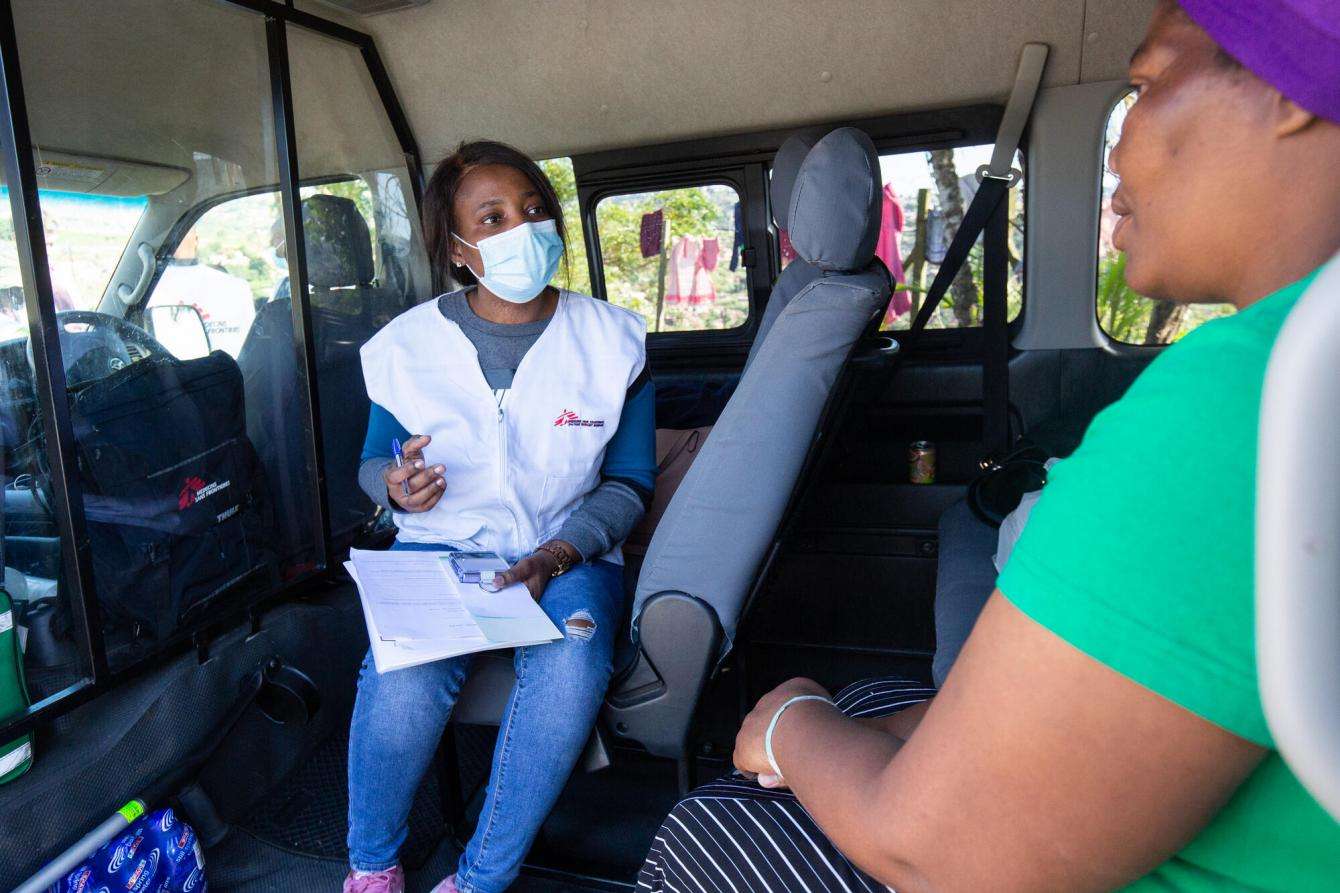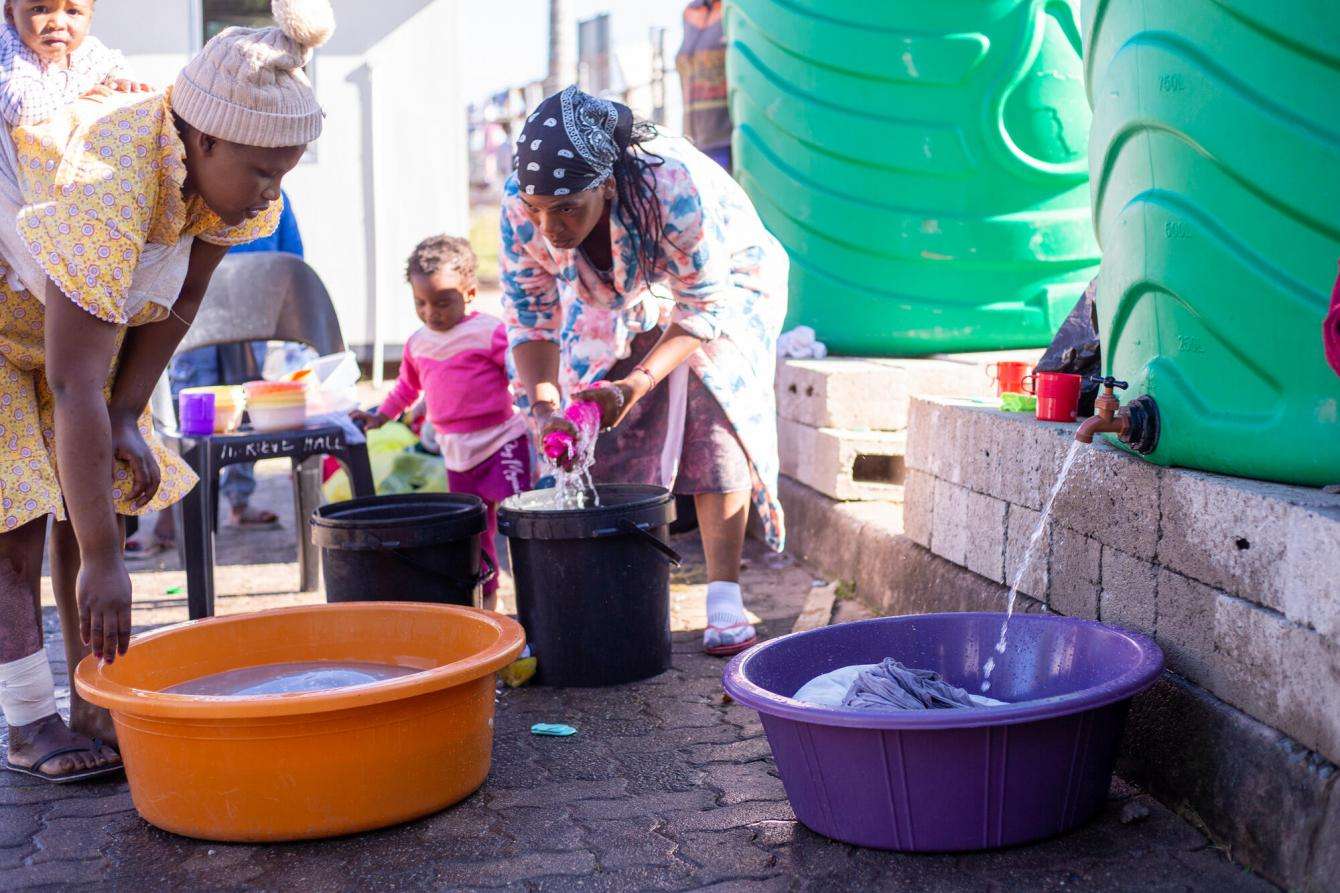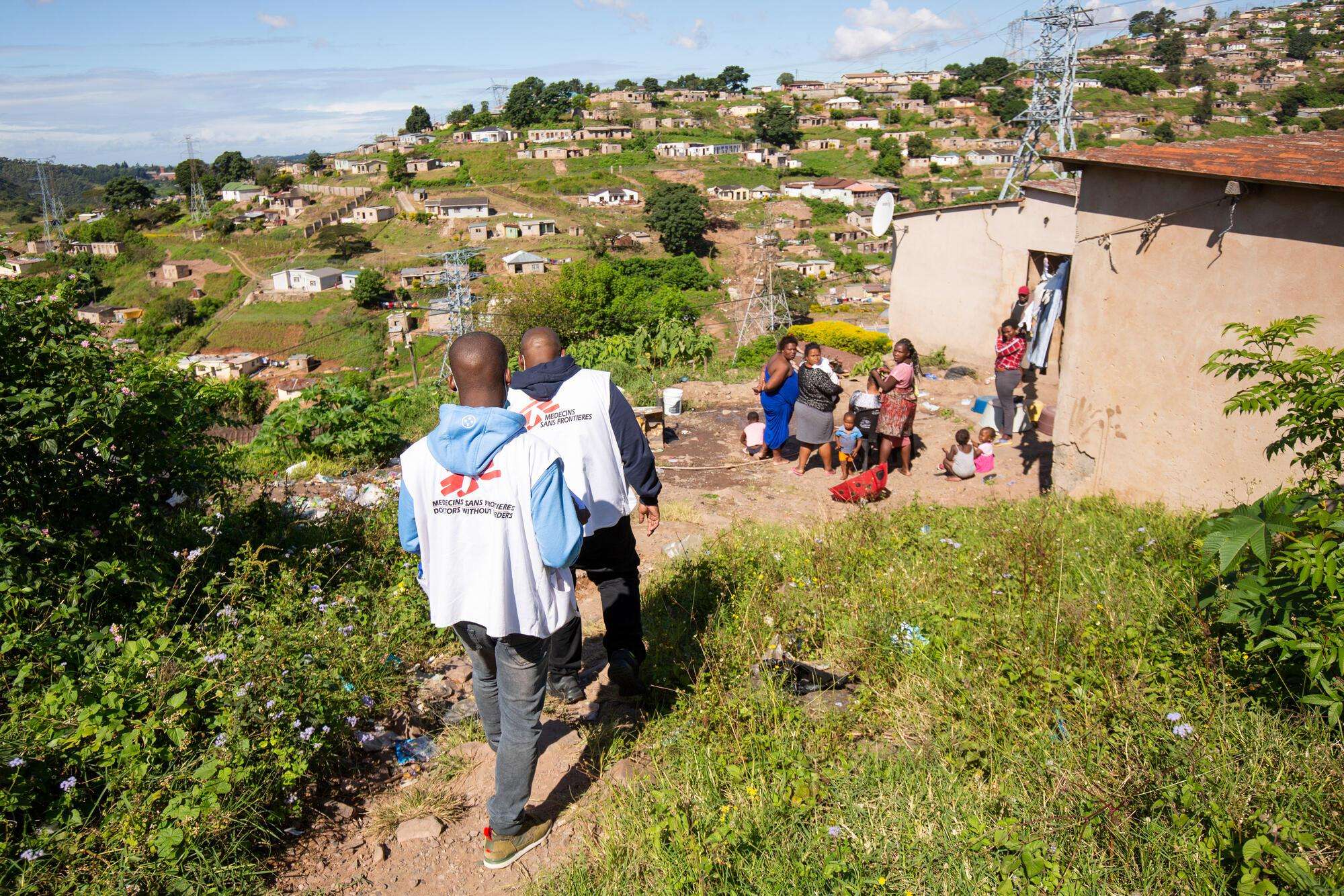The sun has shone almost every day since flash floods tore through the most populous urban areas of KwaZulu-Natal province in South Africa on April 11, but for many people the suffering continues. Large parts of the eThekwini municipality around the coastal city of Durban remain without water and sanitation and at risk of contracting deadly diseases, with no indication of when these services will be restored.
“What we are now seeing is a clean water supply crisis alongside a sanitation and water treatment crisis, creating the conditions for a potential medical crisis,” said Sean Christie, Doctors Without Borders/Médecins Sans Frontières (MSF) emergency team coordinator. For the last two weeks, MSF teams have been providing medical care and water and sanitation support to more than 30 shelters where thousands of people who lost their homes are staying. Approximately 40,000 people have been left homeless by the floods.
To date, MSF has installed more than 20 water tanks and 60 toilets in shelters that are typically overcrowded and without toilets, running water, and electricity. Gradually, water and sanitation conditions in many shelters are improving, but the situation is far from stable. Living in close quarters without proper sanitation can fuel the spread of waterborne disease outbreaks.

“The water truck didn’t come today,” said Nozipho Sithole, a shelter resident. “We have food, but the shelter’s two large water tanks have been empty all day. It is not only us using the tanks—the entire community is without water. We are all thirsty.”
While MSF hasn’t seen unusually high numbers of gastrointestinal disease yet, shelter residents are in great need of medical attention as the risk of both waterborne and airborne diseases is high.
“In communities where clean water provision and sanitation has collapsed there is a high risk of health issues, including acute watery diarrhea, cholera, hepatitis, typhoid fever, and infections of the skin or eyes,” said Nothando Nkosi, an MSF nurse working with a mobile health unit currently serving shelters. “South Africa is also entering the fifth wave of COVID-19 infections, and large numbers of people in the shelters are presenting with cold and flu symptoms—more than 20 percent of all cases we have seen for two days running. There is no social distancing or mask wearing inside these shelters, and very few people have had the vaccine. It’s worrying.”
Two MSF medical teams are supporting the Department of Health and eThekwini Health’s shelter outreach response. Each team comprises a doctor, nurses, a registered counsellor, and two community health workers who supply shelter residents and members of the surrounding communities with information on disease prevention.

“Community engagement around disease prevention and the availability of services at shelters is going to be vital, as many people who lost their homes and livelihoods are still in the community staying with friends and family,” said Dr. Manivasan Thandrayen, MSF’s medical team leader. “Many people are traumatized and bereaved and have lost everything in the floods, including medications for chronic diseases.”
Sitting on a small retaining wall outside Ntuzuma “A” shelter, surrounded by blue plumbago shrubs, Nozipho said she looks forward to being able to sleep again. “We saw many people die that night, and my 10-year-old son and I haven’t been sleeping. My 74-year-old mother isn’t sleeping because she keeps hearing the screams of our friends and neighbors during the flash floods.” To cope, Nozipho said residents sing songs late into the night. “It’s how we are dealing with the loss, the living conditions, and the fact that we must fight for something as simple as water each and every day.”
Lack of sleep and flashbacks come up regularly in the sessions MSF counsellors have been conducting with shelter residents. Body aches, muscle pains, headaches, and bouts of confusion are also commonly reported.
“Every time it starts raining, the fear is really intense, with some of the children trying to run away and hide, fearing that the same thing is going to happen again,” said MSF counsellor Nadia van der Walt. “People are feeling overwhelmed about the work it will take to rebuild their lives. But nobody I have spoken to has said they feel hopeless—in the sense of having lost the will to live—and that is extremely encouraging.”




